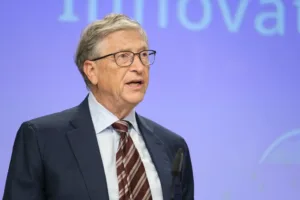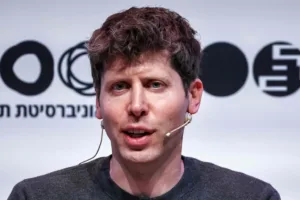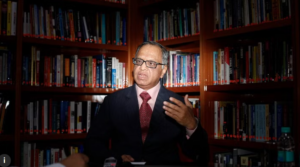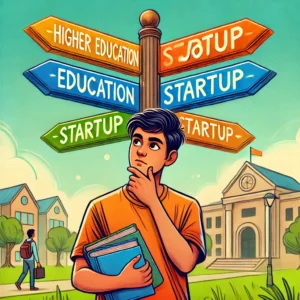Contents
Introduction
The future of work takes center stage in discussions amid rapid technological evolution, with luminaries such as Bill Gates, Sam Altman, and Narayana Murthy playing pivotal roles in shaping its trajectory. Their recent insights, prominently featured in the news, thrust into focus the challenges and opportunities that lie on the horizon. Gates, for instance, envisions a future with a shorter workweek facilitated by advancements in artificial intelligence. Altman, on the other hand, faced controversy surrounding the ethical considerations of AI. Meanwhile, Murthy remains a staunch advocate for a robust work ethic in navigating this digital era.
To gain a deeper understanding of their perspectives, this exploration delves into real-time figures, case studies, and additional resources, providing a comprehensive context for the nuances inherent in their views.
Bill Gates and the AI-Powered Three-Day Workweek

Bill Gates, co-founder of Microsoft, recently made headlines by suggesting that artificial intelligence could lead to a three-day workweek. While this concept may seem futuristic, real-time figures support the idea that automation and AI are already impacting the job market. According to a World Economic Forum report, by 2025, automation is expected to displace 85 million jobs but create 97 million new ones, underscoring the transformative potential of AI.
Case Study
Amazon’s Use of Robotics Amazon, a global e-commerce giant, provides a case study in AI-driven automation. The company has significantly increased its use of robotics in fulfillment centers, streamlining operations and reducing the need for repetitive manual labor. This has not only improved efficiency but also allowed human workers to focus on tasks that require creativity and problem-solving.
Sam Altman’s Ouster and Ethical AI

Sam Altman’s ouster, reportedly linked to an AI discovery raising concerns about humanity, underscores the ethical challenges surrounding artificial intelligence. Real-time figures reveal the exponential growth of the AI market. According to Statista, global spending on AI is projected to reach $98 billion by 2023, highlighting the urgency for ethical considerations.
Case Study
OpenAI’s Ethical AI Charter OpenAI, an organization at the forefront of AI development, has implemented a robust ethical AI charter. This includes commitments to broadly distribute the benefits of AI, avoid enabling uses that harm humanity, and ensure long-term safety. The case study of OpenAI serves as a model for responsible AI development in an era of increasing capabilities.
Narayana Murthy’s Advocacy for a 70-Hour Workweek

Narayana Murthy’s call for a 70-hour workweek challenges contemporary discussions on work-life balance. Examining real-time figures on global working hours, data from the International Labour Organization (ILO) indicates that the average global working week is around 40 hours. Murthy’s perspective prompts reflection on the cultural nuances and expectations that shape work norms.
Case Study
The Four-Day Workweek Experiment Contrary to Murthy’s stance, several companies have experimented with shorter workweeks to improve employee well-being and productivity. Microsoft Japan implemented a four-day workweek experiment, resulting in a 40% increase in productivity. This case study highlights the potential benefits of reevaluating traditional work structures.
Conclusion on the Future of Work
The insights from Gates, Altman, and Murthy offer a comprehensive glimpse into the multifaceted landscape of the future of work. Real-time figures, compelling case studies, and additional resources contribute to a deeper understanding of the intricate challenges and promising opportunities presented by AI and the evolving norms of work. As we navigate this transformative period, it is crucial to draw essential lessons from practical examples and ethical frameworks, ensuring that the judicious integration of technology into the workplace aligns seamlessly with the well-being of individuals and the broader societal fabric.
What’s your take on:
a) A three-day workweek versus a 70-hour workweek.
b) Is OpenAI a positive force, or does it pose a threat to humanity?
Share your views in the comment section.
Grateful to New York Post and The Quint for illuminating insights on the future of work.
Featured image by Freepik




I believe the future should embrace a three-day workweek, utilizing the positive potential of OpenAI.